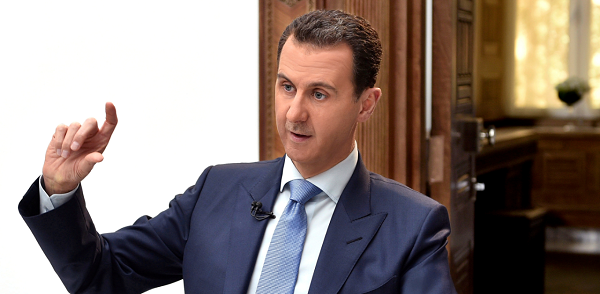Alwaght- Nine years after the start of the devastating war in Syria, the course of developments in the country seems to be moving towards rebuilding and renovation.
The country over the past few years moved out of the harsh situation of the early years of the home conflict and returned to relative normality and Damascus could take control of the whole parts of the country in the near future.
Meanwhile, one of the key developments that demonstrates return to the stability of the administration of President Bashar al-Assad is the formation of a new cabinet in Damascus. The new cabinet follows the July parliamentary elections that were held by an order from al-Assad.
But what are the most important tasks of the new government in the next months?
The cabinet members
The cabinet members, headed by Prime Minister Hussein Arnous who was tasked for cabinet formation by the president, all hold academic degrees and expertise and are chosen with a special emphasis on economy, showing that the new cabinet members are specifically selected for reconstruction and economic improvement goals. Some of them are already serving as ministers while some are new figures.
For example, Walid Muallem is the deputy prime minister and foreign minister. He has been in the post for nearly 15 years. He was graduated from the University of Cairo in economics. He joined the foreign ministry in 1964 and served as a diplomatic representative of Syria in Tanzania, Saudi Arabia, Spain, and Britain. In 1975 he was appointed ambassador to Romania until 1980. From 1990 to 1999, he was ambassador to the US. In early 2000, he was appointed deputy foreign minister and in 2006 was named foreign minister.
The PM is a technocratic figure who seems to have been specifically picked with the major aim of rebuilding the country. Since 2013, Arnous has held several government posts, the last one ministry of water resources. Since the same year, he has been a member of the leadership of the ruling Arab Socialist Ba’ath Party of Syria. Arnous was born in 1953 in Idlib and graduated from the University of Idlib in urban planning in 1978. Between 1989 and 1994, Arnous was the head of the Society of Idlib Engineers and from 1992 to 2004 the head of the General Company for Roads and Bridges. He was appointed deputy transport minister in 2002 and from 2004 to 2009 served as the director-general of the Transport Authority. From 2009 to 2011 he was Deir ez-Zor governor and served in the same post in 2011 in Quneitra province.
Return of democratic will to Damascus
One of the main messages sent by the formation of the new government is the return of democratic will after 9 years of home conflict. After two delays, the general election was held in Syria on July 19. Contrary to the Western claims that the election served as a cover for the president to select loyalists, people from various political tendencies and visions made their way to the 250-seat parliament. This on one side shows that Assad-led Syria is returning to relative political stability and calm and on the other hand successful election and the consequent government formation comprised of various political groups demonstrate that the democratic will is reviving in Syria. Just against the wishes of the terrorist groups, not only the Assad government has not collapsed but also it gradually solidified its legitimacy bases.
Economic improvement and fighting pandemic as top priorities
In the years that followed the crisis, the country has struggled with a host of economic troubles. The crisis unprecedentedly cut the national currency, lira, value. Before the crisis, each Syrian lira dealt for 50 US dollars. This rate is now 2500. In addition to the war-caused crisis, the US-imposed Caesar sanctions regime has dramatically battered the Syrian economy.
While the country has already been suffering under sanctions impacts, the arrival of the coronavirus pandemic outbreak is another hurdle ahead of efficiently administering the country.
The Syrian conditions are now in a way that the formation of a new government does not mean just replacement of figures. Rather, the new government has a big economic and social mission of countering economic woes and coronavirus. In other words, the government has the task of reviving the state bureaucratic system through the revival of the old state institutions and creating new ones.
Rebuilding the country under reconstruction megaproject
Another duty the new government has to fulfill is rebuilding parts of the country that were damaged while the war against foreign-backed terrorism was fought by the military. Many of the regions were seriously damaged during 9 years of fierce battles. For example, Aleppo was the nation’s economic capital, or more exactly the economy’s lifeline, before the war. But terrorist groups who held it several years turned it to scorched land as they knew the government forces will recapture it finally. Its economic infrastructure totally devastated, the city lost its economic centrality.
The expertise and makeup of the cabinet tell of Damascus's intention to rebuild war-torn regions. The noteworthy point is that Arnous as the head of the cabinet is an expert of urban planning. This signals the significance Damascus considers for the reconstruction in the new conditions.



























